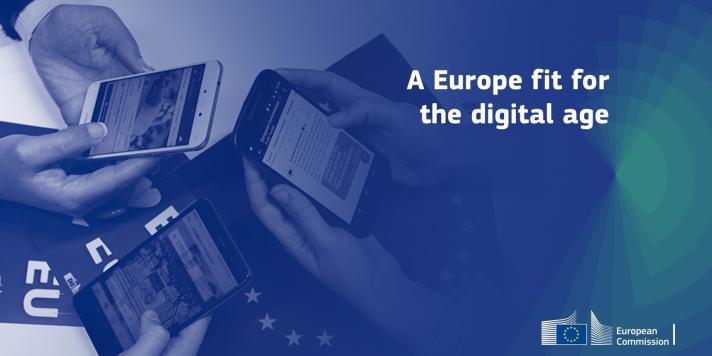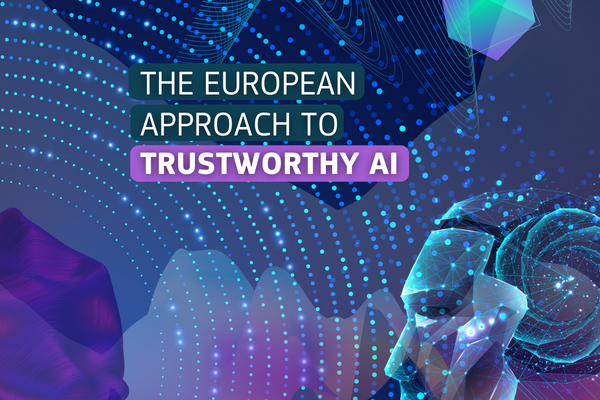
The use of digital technology has become such a part of everyday life that it’s hard to imagine a world without the internet, smartphones or GPS navigation.
It has dramatically changed how we live, work and learn making it easier to connect with people, improving workplace productivity, and providing access to vast amounts of academic and research materials.
Information and communication technologies (ICTs) are also improving healthcare while breakthroughs in Artificial Intelligence (AI) promise to aid in the global fight against climate change, poverty, and hunger.
Digital technology is evolving rapidly and the COVID-19 pandemic accelerated our use of electronic devices for remote working, online learning and social networks.
Faster, more reliable networks provide incredible possibilities for the future, but vulnerabilities and misuse of technology have also emerged.
Dangerous threats such as fake news on social media, unethical hacking, online harassment and data theft have to be curtailed, and children must be protected from inappropriate content.
Misinformation and disinformation has distorted facts in relation to democratic elections, Russia’s illegal invasion of Ukraine and the Israeli–Palestinian conflict while experts are warning that the rapid growth of AI could be dangerous.
Society is still adapting to this new digital era, and the European Commission has made creating a Europe fit for the digital age one of its main priorities.
Digital Decade
Under the Digital Decade policy programme, concrete targets and objectives have been set for Europe’s digital transformation.
Digital Decade targets for 2030 include:
- At least 80% of all adults should have basic digital skills, and there should be 20 million employed ICT specialists in the EU, with more women taking up these positions;
- All EU households should have gigabit connectivity and all populated areas should be covered by 5G;
- Three out of four companies should use cloud computing services, big data and Artificial Intelligence, and more than 90% of SMEs should have at least a basic level of digital intensity;
- All key public services should be available online and all citizens should have access to their e-medical records.
- Recent global shortages of semiconductors has led to major price increases and waiting lists for products from cars and smart devices to medical equipment and domestic appliances. The European Chips Act aims to help the EU double its current global market share of semiconductors to 20% by 2030.

To help reach these objectives, EU Member States are committed to dedicate at least 20% of funds allocated through their Recovery and Resilience Plans to the digital priority.
Ireland’s National Digital Strategy, ‘Harnessing Digital – The Digital Ireland Framework’ outlines a roadmap towards achieving the country’s digital targets.
Europe's Digital Decade – Questions and Answers
European Declaration on Digital Rights and Principles
Digital actions
Even before the introduction of Digital Decade targets the Commission launched several actions that have improved the digital world for European citizens and businesses.
Since 2017 phone calls, SMS messaging and going online with your mobile phone are all covered by your mobile subscription, wherever you travel in the EU.
Unjustified geographically based restrictions – or geoblocking - that undermine online shopping and cross-border sales also ended in 2018.
Data protection has also been enhanced across the EU through the General Data Protection Regulation (GDPR), which gives individuals the right to request a copy of any personal data organisations may be holding about them.
Citizens also have the right to have their data erased swiftly, and companies and organisations have to follow strict rules when it comes to data processing.
The Cyber Resilience Act will require all digital products, such as baby monitors, smartwatches and software with a digital component, to have mandatory cybersecurity requirements throughout their whole lifecycle, and it obliges manufacturers to report exploited vulnerabilities and incidents.
By the end of 2024 USB type-C will be the common charging standard in electronic products, meaning consumers won’t need multiple charging cables for different devices.
The Commission is working on a secure EU Digital Identity wallet that citizens and businesses can use anywhere in Europe to easily access a range of government and private services.
Digital markets and services
The European Commission’s Digital Markets Act (DMA) aims to make online platforms such as search engines, app stores, and messenger services safer and more accountable.
The Commission designates specific online services offered by tech companies as ‘gatekeepers’ if the service is large, dominant and can control access to other online services.

The DMA imposes stringent requirements on gatekeepers, forcing them to adopt behaviours that promote openness and competition, while avoiding unfair practices.
Similarly, the Digital Services Act (DSA) imposes rules regulating services such as online marketplaces, social networks, and travel and accommodation platforms. It also includes measures to protect children from harmful online content.
Europe has become the global pioneer of citizens' rights in the digital world. The Digital Service Act and the Digital Markets Act are creating a safer digital space where fundamental rights are protected. And they are ensuring fairness with clear responsibilities for big tech.
2023 State of the Union address by President von der Leyen
Together, the DMA and the DSA provide important benefits for EU consumers and business including:
- A more competitive digital marketplace, which could lead to lower prices and a wider selection of choices;
- Easier ways to report harmful or illegal content, goods or services on online platforms;
- Stricter age verification measures to restrict access to content unsuitable for minors;
- The ability to contest removal of content from digital platforms;
- The ability to easily choose default digital technologies such as browsers, app stores and software;
- A ban on advertising targeting children;
- Making it easier to obtain and transfer data when switching digital devices, services and apps;
- Allowing app developers to provide apps through alternative channels other than ‘official’ app stores.
There are serious consequences for online services that fail to comply with the DMA or the DSA, including fines that could run into hundreds of millions of euro and an EU-wide ban.
Coimisiún na Meán is Ireland’s designated DSA body responsible for making digital services accountable for how they protect people, especially children, from harm online.
Ireland’s Competition and Consumer Protection Commission has specific responsibility for online marketplaces.
Artificial Intelligence
The European AI Strategy aims to make the EU a world-class hub for Artificial intelligence (AI) and ensure it is human-centric and trustworthy.
The EU Artificial Intelligence Act was adopted in March 2024 and it is the world’s first comprehensive framework for regulating AI.
The AI Act takes a risk-based approach to Artificial Intelligence. It uses a classifying system that bans high-risk applications and ensures fairness, transparency, and mitigation of risks like bias and discrimination.

The Act applies whenever an AI-based system is used in the EU, regardless of where the operator is based. The Commission’s European AI Office, which is the centre of AI expertise across the EU, plays a key role in implementing and enforcing the Act.
In January 2024, the Commission launched an initiative to open up high-performance supercomputers to European AI start-ups and SMEs.
The AI Innovation Package will allow researchers to substantially shorten development times and make scientific breakthroughs in critical areas such as climate change, infrastructure reconstruction and eHealth.
The Centre for Applied AI in Ireland (CeADAR) is the European Digital Innovation Hub (EDIH) for AI in Ireland. It acts as a bridge between academic research and business and offering support to Irish companies seeking to adopt AI and expand their operations.
Ireland’s Digital Decade progress
The Digital Decade Policy Programme relies on close cooperation between Member States to ensure collective progress and the annual State of the Digital Decade report shows what progress has been made in reaching targets.
Digital progress was previously monitored by the Digital Economy and Society Index (DESI) but the State of the Digital Decade report has a broader scope and considers additional aspects of digital transformation.
The first Digital Decade report, published in 2023, highlights the need for Member States to accelerate and deepen collective efforts through policy measures and investment. It includes concrete recommendations to Member States ahead of the adoption of their national strategic roadmaps and for their future adjustments.
The 2023 Digital Decade report states that Ireland is expected to make a positive contribution to achieve the EU’s overall digital targets.
Here are some of the findings for Ireland in the report:
- Digital skills: 70% of adults in Ireland have at least basic digital skills, well above the EU average (54%) and close to the EU 2030 target of 80%.
- Digital infrastructure: Fixed very high-capacity network coverage in Ireland has grown steadily over the past three years, from 67% in 2020 to 84% in 2022, making good progress towards the 2030 target of 100%. However, the report recommends that Ireland accelerate its efforts on connectivity infrastructure in regard to 5G and least 1 Gbps broadband connectivity.
- Digitalisation of business: 85% of Irish SMEs demonstrate at least a basic level of digital intensity. This is significantly higher than the EU average of 69% and very close to the 2030 target of more than 90%.
- Digitalisation of public services: The public services provided to business and the general public in Ireland are highly digitalised, with respective scores of 100 and 81. However, Ireland does not yet provide access to electronic health records, hindering progress towards achieving the Digital Decade target of 100%.
The Irish Recovery and Resilience Plan devotes around €312 million (32%) to the digital transformation, of which €85 million has been allocated to a Digital Transition Fund that supports businesses, particularly SMEs, at all stages of their digital journeys.
News Digital Agenda
Digital Agenda news

- News article
The European Commission has launched a package of measures to support European startups and SMEs in the development of trustworthy Artificial Intelligence (AI) that respects EU values and rules.
- 1 min read

- News article
The European Commission has welcomed the political agreement reached between the European Parliament and the Council on the Artificial Intelligence Act (AI Act), proposed by the Commission in April 2021.
- 5 min read

- News article
The European Commission services have signed administrative arrangements with the media regulators of France and Ireland to support its supervisory and enforcement powers under the Digital Services Act.
- 1 min read
- News article
The European Commission has designated, for the first time, six gatekeepers - Alphabet, Amazon, Apple, ByteDance, Meta, Microsoft - under the Digital Markets Act (DMA).
- 4 min read
